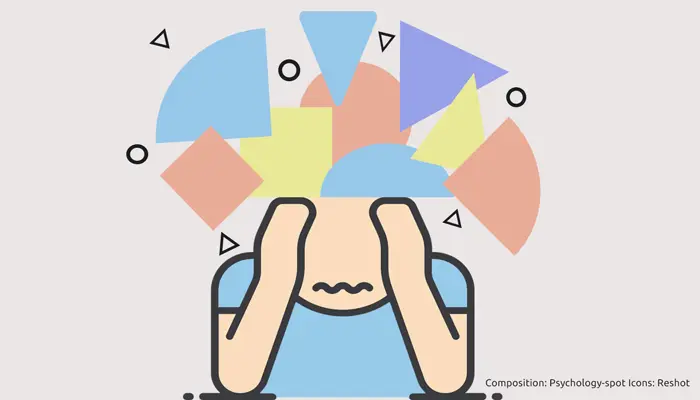
Anxiety is one of the most widespread mental problems of our time, to such an extent that we could say that we live in the Age of Anxiety. On the one hand, we have to face multiple commitments, be connected to respond immediately and meet increasingly high social expectations that generate great pressure. On the other hand, the conditions in which we live and our bonds have become liquid, moving away from the stability and security of other times.
The tension for performance and the uncertainty in which we live constantly form an explosive cocktail that triggers anxiety. It is not by chance that 4 out of every 100 people suffer from an anxiety disorder. And if we do not stop it, that number will continue to rise.
3 thoughts that mark the profile of the anxious person
- Perspective
Where are you? Where would you like to be? The greater the distance between these two responses, the more likely you are to suffer anxiety. The less satisfactory your current life is and the higher your expectations, the more anxiety you will suffer.
The problem are not the ambitious goals, but the fact that we perceive them as something unattainable or the effort or renunciations that we demand ourselves are so great that generate tension. To avoid this problem, it is enough to set ourselves small objectives that we can better manage and allow us to reach, step by step, the goal we have set for ourselves.
It also influences the attitude we assume while reaching those goals. We can work to achieve great things but, still, feeling satisfied with our present. If we work with an eye on a goal, but feeling grateful and satisfied with our current life, anxiety will vanish.
- Pressure
Why do so many people place themselves in a situation that causes them anxiety? Why do they undergo pressing situations? The answer varies from one person to another, but in many cases the starting point is the same: they want to satisfy expectations that border the unreal.
These standards can come from society or from the closest groups, such as friends and family. In fact, the pressure exerted by society is one of the most common sources of anxiety, since we want to comply at all costs with what is expected from us. When we don’t know if we can achieve it, a series of anxious thoughts are activated.
In other cases it’s an internal pressure related to our value system, the expectations about ourselves and our goals. In fact, the profile of the anxious person includes perfectionism, the tendency to self-criticism and self-demand. If you are a person who demands a lot from himself and has a high level of self-criticism but little condescension with himself, you are likely to end up succumbing to the pressures that you put on yourself, which generate anxiety.
- Permission
Many people don’t give themselves the permission to get away from anxiety, to alleviate that situation that generates that state of discomfort. Thus they are trapped in a vicious circle that continues to feed anxiety.
This unhealthy behavior, which at first sight is meaningless, is actually widespread. Many people, for example, equate having a full agenda and running from one commitment to another with the fact of being important. Therefore, making room in their agenda would imply an attack on the image they have of themselves.
Others cling to concerns believing that it’s what should be done or even think that those concerns make them a good person. They don’t realize that worrying without caring is absolutely useless.
Therefore, to relieve anxiety you also need to give yourself the permission for letting go or get away from all those worries or situations that actually make you feel bad and affect your mental balance.
Source:
Berger, L. & Tibaldeo, G. (2018) Worry Less Now: The Three P’s of Anxiety. In: Psychology Today.



